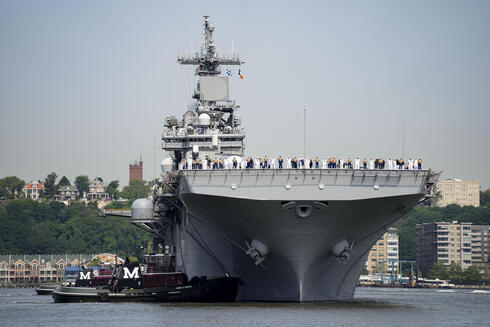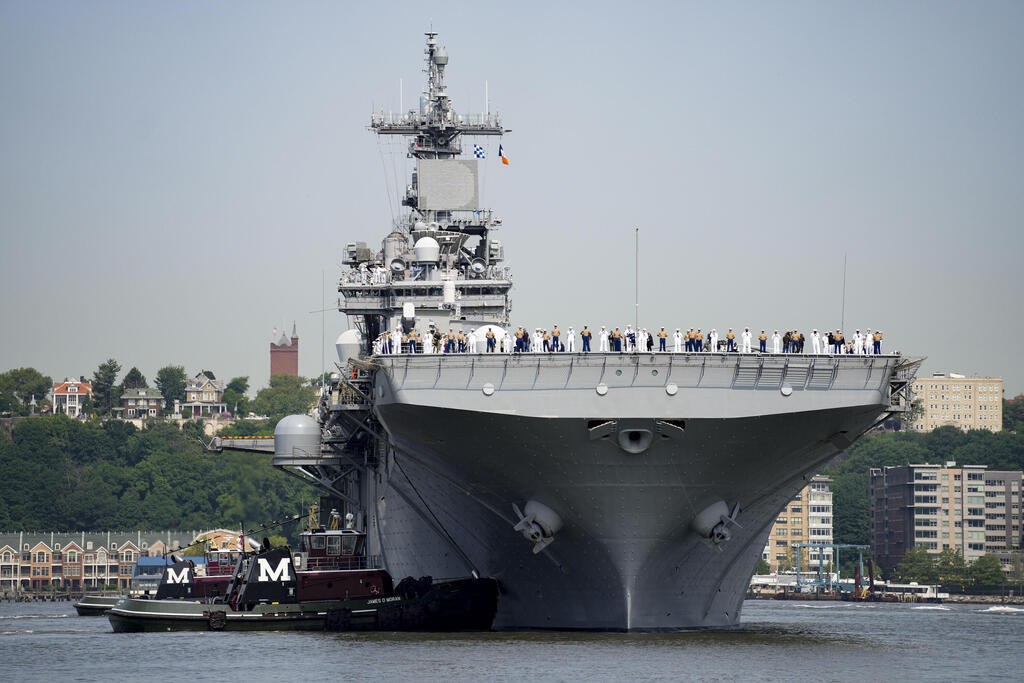US moves warships to Mediterranean to avert Israel-Lebanon war

The amphibious assault ship USS Wasp entered the eastern Mediterranean this week as the U.S. moves warships into position to prevent fighting between Israel and Hezbollah in Lebanon from escalating into a larger war in the Middle East.
While the Wasp could help evacuate civilians if a full-scale war broke out between Israel and the Iranian-backed militant group on the border with Lebanon, that was not the main reason for the deployment, a U.S. official said. “It’s about deterrence,” the official said.
3 View gallery


Amphibious assault ship USS Wasp
(Photo: John Minchillo / AP archive photo)
A second U.S. official said the rotation was comparable to the deployment of the U.S. assault ship USS Bataan to waters around Israel shortly after the October 7 Hamas attack. The ship remained in the eastern Mediterranean for months to provide options and try to contain the conflict. The officials spoke on condition of anonymity to discuss sensitive operational details.
U.S. officials said last week that the Wasp’s deployment was likely once the aircraft carrier USS Dwight D. Eisenhower and its air squadron leave the region. The Wasp is equipped with F-35 fighter jets that perform short takeoffs and vertical landings, allowing them to conduct air strikes from smaller ships.
The U.S. European Command, which is responsible for ships operating in the Mediterranean, announced the move this week. The Wasp and the 24th Marine Expeditionary Unit aboard would travel with the dock landing ship USS Oak Hill, which is used to transport Marines, landing craft, vehicles and cargo. The Oak Hill is already in the Mediterranean.
The Wasp also sails alongside the amphibious transport dock ship USS New York, which can deliver troops either by deck-based helicopters or by landing craft.
All this is happening as Hezbollah and Israel have been exchanging almost daily cross-border attacks since the October 7 attacks that sparked the war between Israel and Hamas in the Gaza Strip, and these attacks are gradually escalating.
3 View gallery


Defense Secretary Yoav Gallant with US Defense Secretary Lloyd Austin at the Pentagon
(Photo: Ministry of Defense )
A U.S. official said concerns about a major escalation are lower now than last week, but still higher than last month. The official, who spoke on condition of anonymity to discuss internal Biden administration deliberations, said the assessment had less to do with Israeli Defense Minister Yoav Gallant’s meetings in Washington this week and more to do with a decrease in attacks by both Hezbollah and Israel in recent days.
The Israeli military said last week that it had “approved and confirmed” plans for an offensive in Lebanon, but that any decision on the matter would be up to the country’s political leadership.
Chairman of the Joint Chiefs of Staff Brown said on Sunday that any Israeli military offensive in Lebanon would risk an Iranian response in defense of Hezbollah, which could trigger a broader war that could endanger American forces in the region.
The Eisenhower, based in Norfolk, Virginia, is returning home after an eight-month deployment to fend off Houthi attacks on merchant ships in the Red Sea. The Navy says it is its most intensive mission since World War II. The USS Theodore Roosevelt, based in San Diego, will take the Eisenhower’s place.



